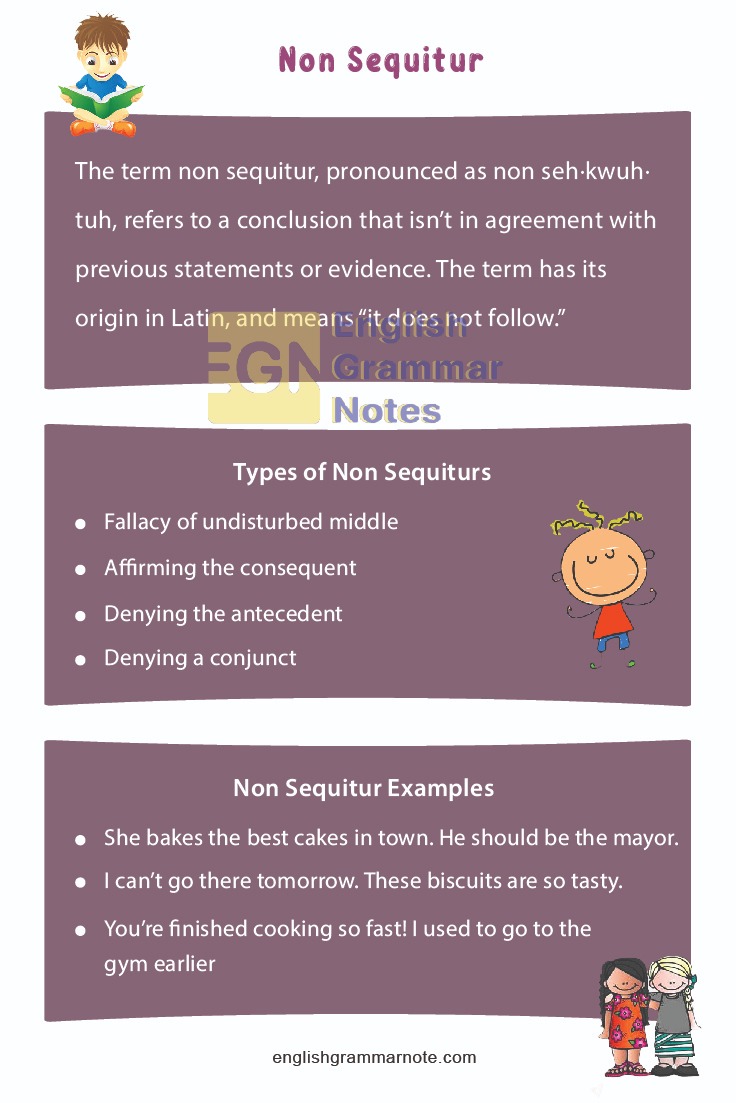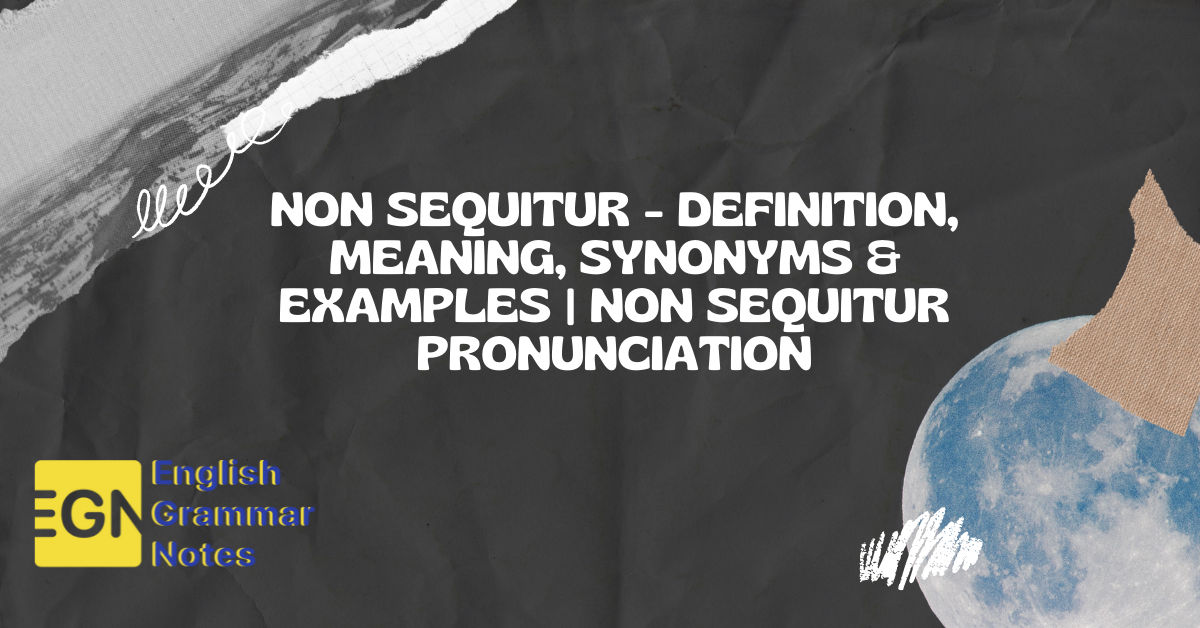Non sequiturs are present in everyday conversation and arguments. They are effective in literature as the use of non sequitur results in a comedic and dramatic effect. In this article, you will be introduced to all the essential information about non sequitur including its definition, examples, its significance, etc.
- Non Sequitur Definition
- Types of Non Sequiturs
- Non Sequitur Examples
- Function of a Non Sequitur
- Related Literary Terms
- What is a non sequitur?
- What are the benefits of using non sequiturs?
- Give some examples of non sequiturs?
- What does the term non sequitur mean?
Non Sequitur Definition
The term non sequitur, pronounced as non seh·kwuh·tuh, refers to a conclusion that isn’t in agreement with previous statements or evidence. The term has its origin in Latin, and means “it does not follow.” Non sequiturs fail to follow the logic and are usually untrue. A non sequitur fallacy is formed when there exists a difference between the main idea and the conclusion, which in turn leads to a fallacy.
Types of Non Sequiturs
The various types of non sequiturs include:
- Fallacy of undisturbed middle
- Affirming the consequent
- Denying the antecedent
- Affirming a disjunct
- Denying a conjunct
Non Sequitur Examples
In conversation non sequitur refers to absurd statements that convey no meaning. It’s not that they are random statements but such statements do not follow logic. Common examples of non sequiturs include:
- My refrigerator seems to be acting up. I’d better finish that movie tomorrow.
- Tomorrow I have to take my car in for service. I don’t think my stylist will be available tomorrow.
- She bakes the best cakes in town. He should be the mayor.
- I was sick after eating sushi. Pasta is the best.
- Your pet is so cute. We have three brothers.
- It’s so nice to meet you. What is the time?
- Do you know English? What do you think “Comment t’appelles-tu?” mean in French?
- I can’t go there tomorrow. These biscuits are so tasty.
- How old are you? My favorite color is pink.
- You’re finished cooking so fast! I used to go to the gym earlier
Read More:
Function of a Non Sequitur
The main purpose of using non sequiturs includes:
- Non sequiturs create a comic or dramatic effect.
- To point out the confusion existing within a situation.
- Used to change the subject of a conversation.
- As a literary device, non-sequiturs are used to bring laughter through humor.

Related Literary Terms
Few other literary terms associated with non sequiturs include:
- Pathetic Fallacy: attributes human emotions and actions to non-human entities.
- Red Herring: a type of fallacy that presents something irrelevant to a larger context.
- Comedy: a genre of literature, film, and television.
- Satire/Satirical Comedy: A genre that makes fun of certain behavior or social ways.
Improve your English Grammar Skills and never make any mistakes in English concepts like parts of speech, tenses, English phrases and a lot more by making the most of our English Grammar Notes.
FAQs on Non Sequiturs
The term non sequitur, pronounced as non seh·kwuh·tuh, refers to a conclusion that isn’t in agreement with previous statements or evidence.
2. What are the benefits of using non sequiturs?
The use of non sequiturs has several benefits. These include non sequiturs that add humor and dramatic effect to a work. Non sequiturs can be used to point out the confusion existing within a situation, used to change the topic of a conversation, etc.
3. Give some examples of non sequiturs?
Some examples of non sequiturs include:
- I was sick after eating sushi. Pasta is the best.
- Your pet is so cute. We have three brothers.
- It’s so nice to meet you. What is the time?
4. What does the term non sequitur mean?
The term non sequitur has its origin in Latin, and means “it does not follow.”
Conclusion
Non sequiturs are devices used in movies, novels, television, etc. The use of non sequiturs is not usually advisable in formal writing. Writers make use of non sequiturs to enhance the comedic effect of a literary work. In daily conversations, non sequiturs come in the form of absurd statements. The appropriate use of non sequitur can make a work humorous.
